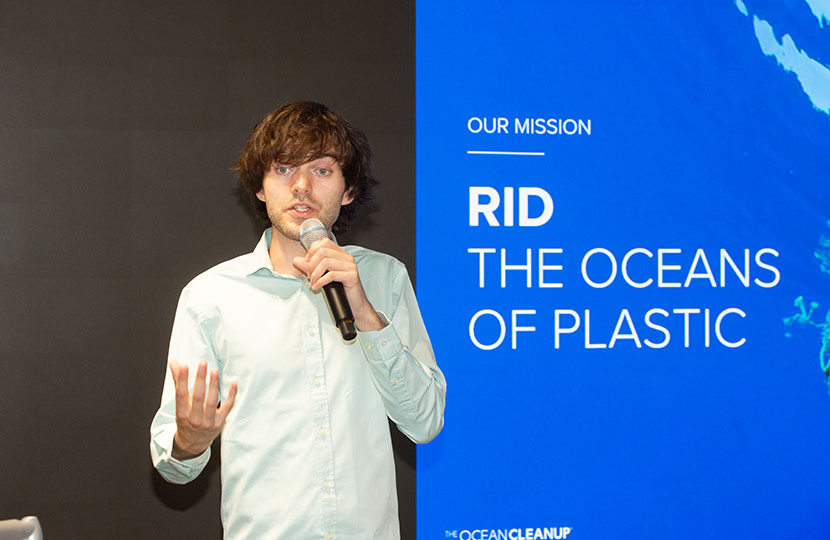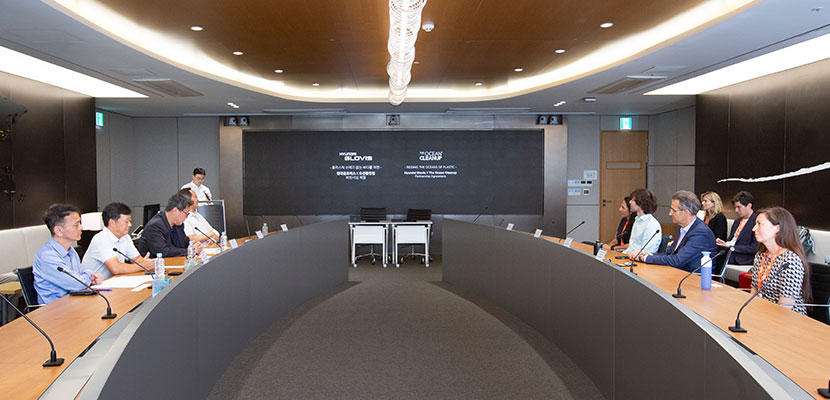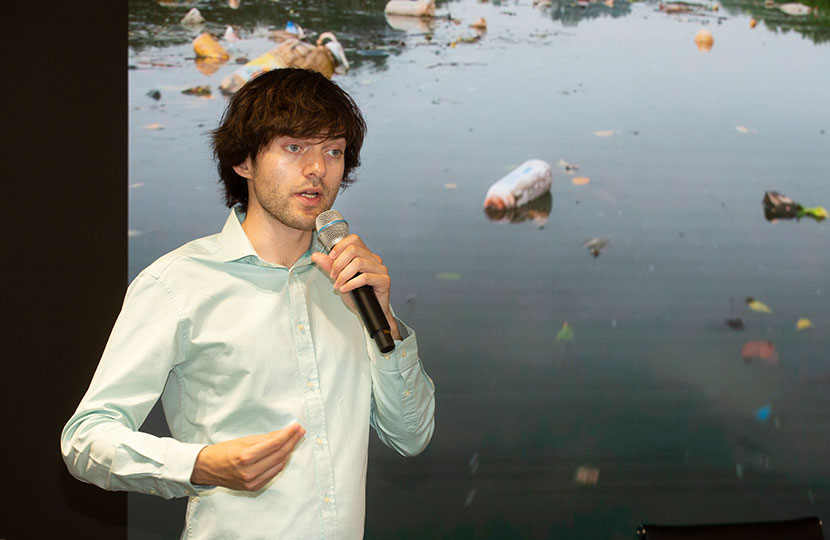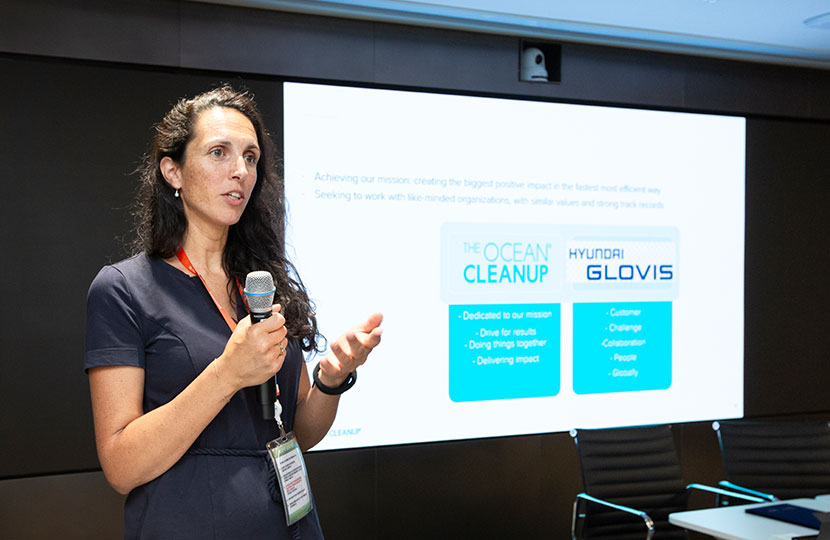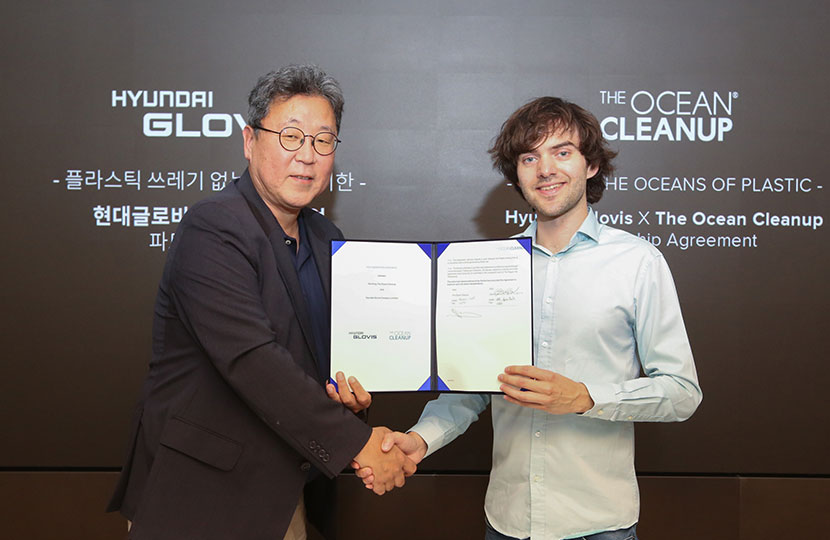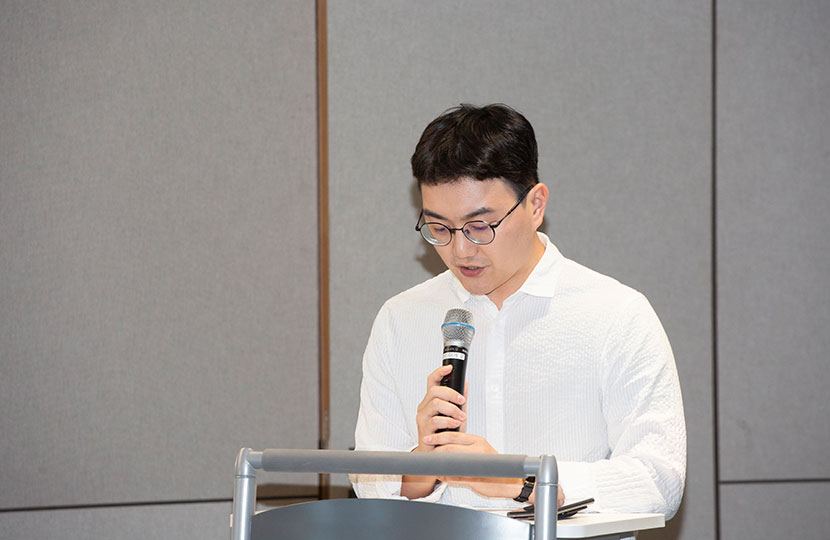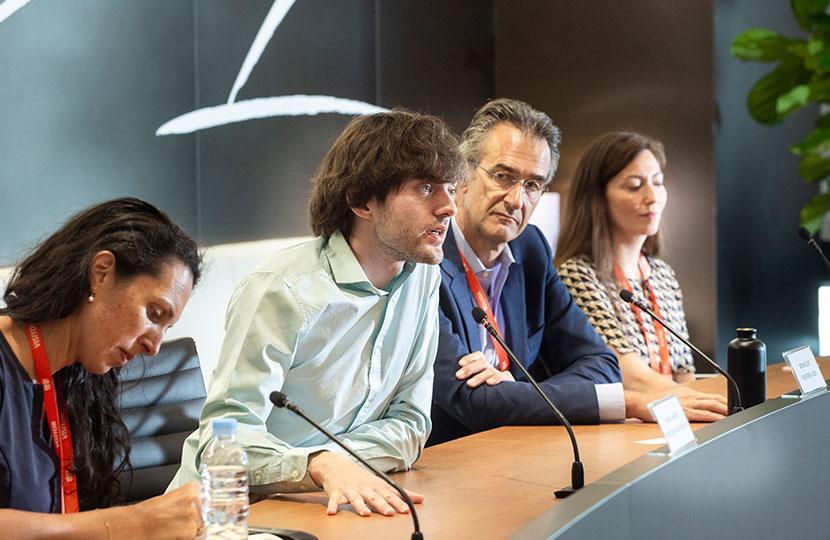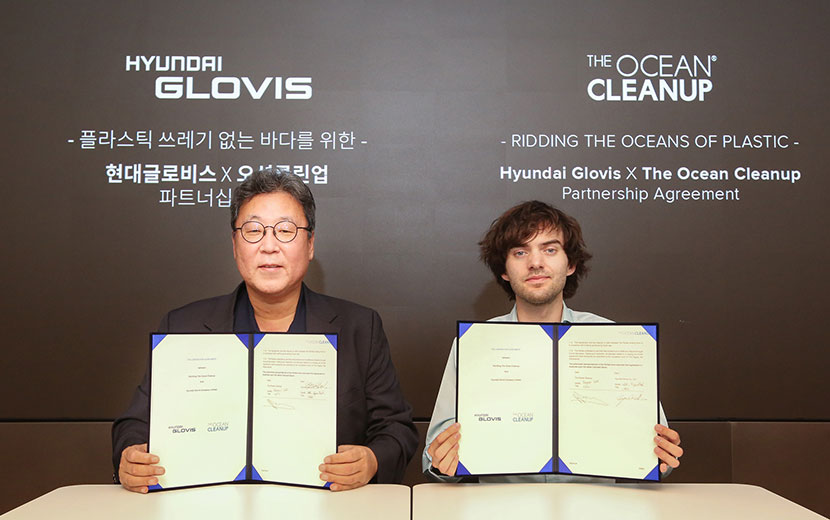Plastic pollution has become a pervasive problem in the world’s oceans, and Hyundai Glovis is doing something about it. The company has partnered with Ocean Cleanup, a global environmental NGO, to help remove plastic from the oceans. It is the beginning of Hyundai Glovis’ movement for a sustainable global environment.
At a time when the importance of marine ecosystems and the environment is on the rise, Hyundai Glovis, a global integrated logistics company, has joined an active movement to create cleaner oceans. The company uses its marine transportation capabilities to remove plastic waste that spreads throughout the world’s oceans and threatens ecosystems. Currently, tens of millions of tons of plastic enter the oceans each year, threatening the survival of marine life and causing severe pollution. According to the United Nations Environment Program (UNEP), the world produces 460 million tons of plastic every year, but less than 10 percent of it is recycled. Most of the rest ends up in rivers and oceans, destroying marine ecosystems.
On July 5, at Hyundai Glovis headquarters in Seongdong-gu, Seoul, Hyundai Globvis announced a partnership with global environmental organization Ocean Cleanup to collect marine information and support collection efforts. Hyundai Glovis CEO, Lee Kyoo-bok, and Ocean Cleanup CEO, Bojan Slat, attended the signing ceremony, where they expressed their strong commitment to working closely together in their shared mission of eliminating marine plastic pollution.
Hyundai Glovis and Ocean Cleanup, a global environmental NGO based in the Netherlands, have partnered to eliminate marine plastic around the world by preventing plastic waste from entering the ocean through rivers, or by collecting and recycling plastic that has already accumulated in the ocean.
Hyundai Glovis will partner with Ocean Cleanup to collect information on marine debris and support effective collection. Hyundai Glovis’ ships traversing the oceans across continents, and they possess a significant advantage in gathering valuable data on floating plastic in every corner of the globe. Therefore, Hyundai Glovis will first install cameras on its ships to collect detailed information on the location and amount of plastic floating in the ocean and share it with Ocean Cleanup. It is crucial to promptly collect various types of plastics, such as plastic bottles and Styrofoam buoys. Failure to gather them promptly could result in their fragmentation and subsequent ingestion by marine life, exacerbating the gravity of the issue.
The company will also help move equipment such as the barges developed by Ocean Cleanup to collect marine plastic waste. Hyundai Glovis will provide a large number of containers secured by Ocean Cleanup as a freight forwarder to transport the equipment at the lowest cost. The equipment of Ocean Cleanup will be transported on container ships to coastal regions adjacent to the oceans, where the collection of marine plastic waste is required. In addition, the company will donate a certain amount of money to Ocean Cleanup every year for three years starting this year.
A representative from Hyundai Glovis said, “We attach great importance to fulfilling our corporate social responsibility for a sustainable global environment, and we will continue to strive to make a positive impact through meaningful activities for the environment.” Ocean Cleanup also expressed its ambition saying, “We plan to improve the marine environment through cooperation with Hyundai Glovis and to further research and develop more efficient plastic recycling methods.
In addition, Hyundai Glovis is promoting a battery recycling business that utilizes the company’s logistics capabilities to recover and supply batteries after electric vehicles have been used and are actively participating in climate change policies to achieve domestic greenhouse gas reduction targets by 2030. Hyundai Glovis’ eco-friendly management for a cleaner planet will continue beyond the sustainable marine environment.
First of all, congratulations on the signing of the MOU between Hyundai Glovis and Ocean Cleanup. Please tell us how you came to this agreement and what its purpose is.
Since last year, we have been thinking about how Hyundai Glovis and Ocean Cleanup can synergize, and this event is the culmination of that thinking and the beginning of a promising path forward for both companies.
Why did you choose Ocean Cleanup as your partner?
This partnership with Ocean Cleanup is significant because it is the first step in Hyundai Glovis’ global social contribution activities. We felt that Ocean Cleanup, which has been working to eliminate ocean plastic, was the best partner for our company, which is primarily involved in logistics and shipping.
Who is Ocean Cleanup, the organization you work with?
Ocean Cleanup is a Dutch non-profit organization established in 2013. it was founded by Bojan Slat, an ambitious environmentalist born in 1994, who has been actively working to stop the pollution of marine ecosystems ever since. The work of Ocean Cleanup is divided into two main parts. Ocean Cleanup’s work is divided into two parts: stopping plastic debris from entering the ocean from rivers and collecting plastic debris that has already drifted into the ocean. Ocean Cleanup actively conducts research and cleanup operations on oceans across continents using its people, facilities, and equipment.
Tell us about the details of the partnership. What is Hyundai Glovis’ role?
First, we help collect data by attaching Ocean Cleanup’s research camera equipment to the railings of our vessels. The equipment is not just a camera, but a device that can scientifically analyze and collect data on the size, speed, direction, and density of plastic debris floating on the surface of the water. This will allow Ocean Cleanup to more accurately scan and predict the movement of plastic in the world’s oceans. We will also provide cargo transportation services for Ocean Cleanup’s research equipment, such as “interceptors” that catch debris on riverbanks, for intercontinental transportation if requested by Ocean Cleanup.
Please tell us about other environmental activities that Hyundai Glovis is undertaking to fulfill its eco-friendly management and social responsibility.
Not only my department, which is in charge of social contribution, but also team members from various departments within the company are striving to fulfill eco-friendly management and social responsibility, so please give us your support.
What does Hyundai Glovis expect from this MOU, and what are your goals for the future?
We hope that the signing of this MOU will serve as a starting point for expanding our social contribution activities based on our business as a global integrated logistics company around the world. In addition, we are preparing to establish an evolutionary input process where various departments can contribute ideas and opinions to our social contribution programs.
By the Editorial Department
2023.07.18


